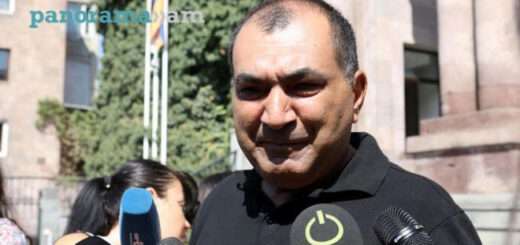What Washington Can Do To Slow Turkey’s Despotic Turn

Turkish President Recep Tayyip Erdogan is tearing his country’s democracy apart, and getting bolder by the day. He has been on a spree of imprisoning foes and, on July 7, began an effort to ban nearly half of the main opposition party from sitting in parliament.
,
While Brussels perceives Ankara as an essential security partner in the face of a growing Russian threat, Washington is looking for even more. The Trump administration thinks it can rely on Turkey to stabilize Syria, help achieve peace in Ukraine, and even mediate a deal between Israel and Iran.
Such enthusiastic support from Western allies frees Erdogan to focus on further consolidating his power at home.
Erdogan’s Turkey has always stood apart from other democracies. Yes, it holds elections, but Erdogan manipulates the playing field so only he can win. He has hollowed out his country’s civil society, curbing free speech and freedom of the press. Few dare to criticize him, and when they do, prison is often their next stop, as key opposition figures learned earlier this month.
To be clear, Erdogan has spent a long time pruning democratic institutions in Turkey. Since the Gezi Park protests of 2013, when Turkish citizens first rose to challenge Erdogan’s abuse of power, the Turkish president has crushed democratic norms relentlessly. Inspirational thought leaders like Osman Kavala—who championed the Gezi protesters’ challenge to Erdogan’s abuse of power, anti-environmental practices, and corrupt governance—are in jail for life, branded “terrorists.” In fact, Turkish jails are bursting at the seams with political prisoners who have been incarcerated for such “crimes” as insulting Erdogan.
The Turkish leader has also used the 2016 coup attempt against him as an excuse to pull apart the rule of law and any vestiges of institutional governance in Turkey. Everyone and everything must be personally loyal and accountable to him. That includes the media, where independent outlets were sold to Erdogan loyalists who dominate the information space to misinform and spread fear among citizens.
Erdogan’s popularity has waned despite (or perhaps because of) his draconian measures. Turkish voters punished him and his Justice and Development Party (AKP) in local elections last year. In a vote of no confidence in their president, the opposition Republican People’s Party (CHP) took a large percentage of the country’s local government positions. Erdogan perceived the results as a rebuke of his domestic and economic measures, and fears for his job in the 2028 elections.
But unpopularity is no reason to lose an election if you are an autocrat. After 23 years in power, it’s not surprising that Erdogan resorts to brazenly undemocratic methods.
Erdogan is denying the CHP the opportunity to truly challenge him. On March 19, the CHP mayor of Istanbul, Ekrem Imamoglu, was arrested and jailed on spuriouscorruption charges. Imamoglu has been the leading contender for the presidency since 2023, and the one candidate whom Erdogan fears the most. He is young, charismatic, and has won the Istanbul mayor’s office three times since 2019.
Imamoglu’s jailing was a gamechanger. It revealed Erdogan’s willingness to pressure the judiciary to preemptively jail a political opponent—in this case the one who appeared best suited to beat him in 2028. In this way, Turkey begins to resemble Russia, where qualified candidates are considered a threat just because they are qualified.
The regime’s crackdown on the CHP has not ended with Imamoglu’s imprisonment. Erdogan is seeking to remove the present leadership of the party, including Ozgur Ozel, who lead the CHP to its local election victory in 2024. The president wants to bring back the previous chairman, Kemal Kilicdaroglu, who has consistently lost to Erdogan, most notably in the 2023 vote.
On July 5, the CHP mayors of Adana, Adiyaman, and Antalya were arrested on charges of corruption. As in the Imamoglu case, these charges have not been substantiated, and the arrests are attempts to decapitate the CHP. On June 7, the AKP filed a parliamentary petition seeking to remove the immunity of 61 CHP MPs out of 135, putting them at the mercy of the coopted judiciary.
Today, it looks as if no one inside Turkey has the power to put the brakes on Erdogan’s blatant power grab. That makes it crucial for pressure to come from Turkey’s allies, not just to offer a democratic lifeline to Turks, but also to preserve Western security.
As his commitment to democracy has disappeared, Erdogan has found common cause with the West’s adversaries, including Vladimir Putin. Since 2019, Ankara has deepened its strategic ties with Moscow, to include arms purchases that threatenNATO‘s security and interoperability. The two are also developing a joint civilian nuclear power program that carries the potential to evolve into a nuclear weapons program.
To show its displeasure with Erdogan’s anti-democratic moves and preserve Western security, Washington must maintain its sales ban of F-35 aircraft to Turkey. Provisioning the country with F-35s risks arming an ally in the process of becoming an adversary. It also carries the risk that the F-35’s stealth secrets could fall into the hands of Erdogan’s pals in Russia, China, and Iran.
Additionally, the European Union should suspend current negotiations for Customs Union reform between itself and Turkey. While Ankara is interested in expanded trade opportunities with Europe, increased trading privileges must be tied to improved human rights and democratic governance. Simultaneously, Turkey’s participation in the E.U.’s Security and Action for Europe strategic plan must be resisted. Europe’s democratic values must not be compromised by developing procurement chains from autocratic states.
Lastly, the White House should also consider limiting the sale of Turkish manufactured weapons systems—such as drones—to entities approved by the Department of Defense and other NATO countries. Such a move would pull back on Erdogan’s hopes of turning Turkey’s defense manufacturing into a major industrial engine for the
By doing so, the rest of NATO can offer at least some reason to hope that Erdogan will more carefully consider the consequences of denying freedom to his people.





